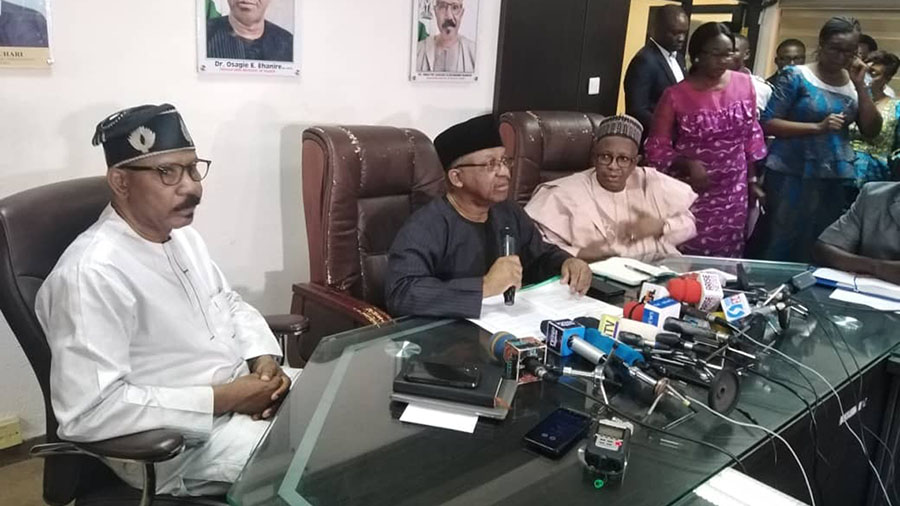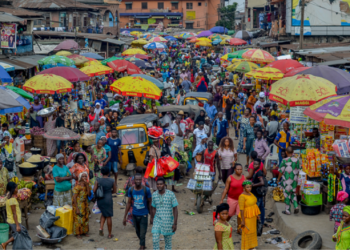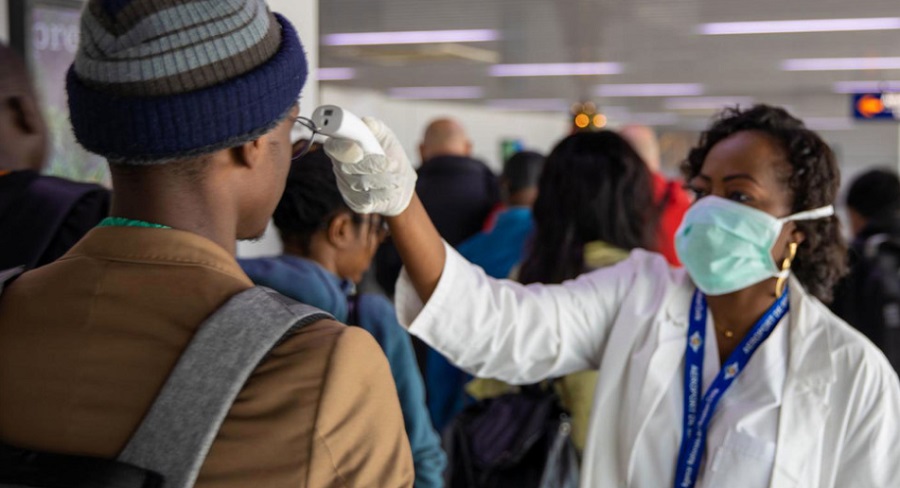The Coronavirus (COVID-19) pandemic is arguably the biggest challenge facing humanity today. More than 300,000 cases have been confirmed in 188 countries and territories, and over 14,000 people are below six feet already.
Beyond its health impact, the spread of the virus is hurting the global economy. The impact is already visible in the countries most affected such as China and European countries, where travel restrictions and distancing measures have disrupted global supply chains and resulted in reduced economic activity.
But the good news is that world leaders are working hard to contain the virus. Infection rates have dropped drastically in China, while many other countries are responding smartly to put an end to COVID-19.
Nigeria confirmed the first case of COVID-19 on February 28. It has since increased to 31 cases. While the country is not a COVID-19 hotbed yet, its economy could be one of the hardest hit, should it persist for longer, due to a fragile healthcare system and high dependence on the rest of the world.

Ways COVID-19 could affect Nigeria
Trade and investment disruptions: Nigeria’s investment and trade are mostly with China, Europe, and the US, which are territories currently vulnerable to COVID-19. The slowdown of economic activities in these locations means that trade and investment will decline sharply, raising the risk of an economic recession.
Manufacturers relying on imported inputs will face production challenges while reduced importation of food and pharmaceutical products would put a heavy burden on households and the healthcare system.
Lower government financial capacity: Nigeria could lose up to US$20 billion from crude oil sales-which represent 85% of its export- as fuel prices continue to fall.
As oil revenue accounts for one-third of expected public revenue in 2020, governments will have limited capacity to support the economy. Revenue shortfall will worsen Nigeria’s debt burden as around 60% of the federal government’s (FG) revenue already funds debt obligations. Sub-national governments will struggle to pay employee salaries and related costs – similar to what happened during the 2014-16 oil price crisis.
[READ MORE: COVID-19, a virus that shakes global financial markets)
Lower social spending: Typically, Nigeria underfunds social sectors (health, education, and social safety net). Around 4% and 6% FG budget for 2020 went to Health and Education respectively, far below the recommended thresholds of 15% for Health and 20% for Education.
Lower revenue means less money would be available to spend on health, education and critical infrastructure, as overhead and debt payments are usually prioritized during crises. The outcome could be very bad for a country that already has one of the worst health outcomes worldwide, and with 4 out of 5 persons aged 15-24 unable to read a full sentence.
Elevated poverty: Nigeria currently has the largest number of extremely poor people in the world today at 95 million and an average of 4 people join them every minute. Unemployment and poverty will worsen as workers in trade-sensitive businesses, particularly tourism, transport, hospitality, and non-essential manufactured goods are disengaged due to restricted movement of goods, services, and people.
Remittances from abroad, which support households, may also fall and worsen economic hardship. Around $25 billion of remittances – equivalent to the Federal Government of Nigeria budget – came into the country in 2019.
How govt should respond?
The government’s response should come in two approaches: focusing on immediate priorities and implementing reforms to boost resilience beyond the crisis. Beyond international travel restrictions and stimulus for businesses, more must be done to protect vulnerable households.
Adequately support the healthcare system: Prior to COVID-19, healthcare institutions were already overburdened with many ailments given poor medical supplies, shortage of medical workers and poor infrastructure.
To have a fighting chance against COVID-19 and in treating those requiring intensive care, the healthcare sector must be supported through adequate funding, incentives for health workers, and health care subsidies for the most vulnerable people.

Provide incentives and safety nets to the most affected: Through targeted tax incentives, social transfers, and regulatory support, the Nigerian government could help minimize the impact of COVID-19 on the most vulnerable businesses and citizens.
With the adoption of social distancing measures to limit the spread of the virus, the government should partner with informal groups such as trade associations, who have a wider reach, to deliver support to people in vulnerable employment.
[READ ALSO: COVID-19: Lagos asks civil servants to stay at home)
Enable vulnerable sub-national (state) governments: Sub-national governments have improved their resilience to oil-related crises by improving Internally Generated Revenue (IGR) but many would struggle to pay salaries given the crisis. Therefore, the FG and the CBN can expand loans to states to enable them to pay workers and support the healthcare sector.
Reduce cost and Improve transparency: The government should reduce the cost of governance by changing its ways in the incurring of administrative costs and prioritizing the most effective development programs. This will free up more money for social and infrastructural spending and improve its resilience.
Similarly, reducing the misuse of public finances through commitment to transparency, opening up budgets, and strengthening anti-corruption institutions should be a priority during and post COVID-19.
Now more than ever, policymakers must be responsive to lessen the effects of the impending social and economic crises and better prepare Nigeria for the future.
Written by: Razaq Fatai from ONE Campaign and Adedayo Bakare from Afrinvest























Quite an insightful read @Razaq and Adebayo.
Knowing that this administration is overwhelm already sequel to their responses to national and international issues, can’t these policy recommendations be reviewed and channelled to private sector driven intervention programs?
Your views are quite commendable and they can only translate to meaningful results if given a wheel by pragmatic leaders.